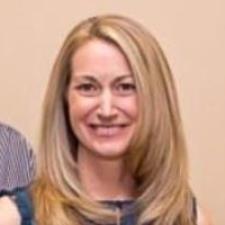 Post Classifieds
Post Classifieds
The Sidore Lecture Series Returns

The Sidore Lecture Series returned this semester on Tuesday, February 19, continuing its year-long discussion on climate change. The first lecture of this spring semester was presented by Dr. Adrienne Kovach.
Dr. Kovach is a biologist who has been working at UNH since 2001. She grew up in the Midwest and has been researching New Hampshire wildlife for years now, most recently focusing on a species of bird called the Saltmarsh Sparrow. This bird lives in salt marshes throughout NH, like the ones near Hampton Beach.
I had the opportunity to attend a dinner with Dr. Kovach and a couple of members of the PSU Sidore Committee, and a graduate student before the event began. Throughout the course of the dinner, they all discussed their research and how they expect climate change to impact the world in the next few decades.
Dr. Kovach’s lecture was titled “From Mountains to Sea: How Climate Change Impacts New Hampshire’s Wildlife.” During the lecture and the dinner beforehand, Dr. Kovach seemed most comfortable when discussing or presenting her research. Her current research is on the Salt Marsh Sparrow (a species of bird) specifically, but for this lecture, she chose to speak on climate change in New Hampshire as a whole. The lecture was well-attended, with a variety of students and locals in the audience, including Plymouth State University Provost Robin Dorff.
Dr. Kovach began her lecture by setting up the big picture: the Intergovernmental Panel on Climate Change (IPCC) said that the global temperature is going to rise by 1.5 degrees Celcius sometime between 2030 and 2050. And if we do nothing at all, global temperatures are set to rise by 3 degrees before the end of the century.
So what comes with that rise in temperature? According to Dr. Kovach, quite a bit. Of course, global warming has global implications, but Dr. Kovach focused mostly on New Hampshire. She started by going over some current results of climate change.
Recently there have been more days above 90 degrees Fahrenheit, there has been less snow, earlier springs, and the NH state bird, the Purple Finch, may even shift out of the state, due to the change in seasonal patterns. She also made sure to bring in a global perspective by revealing that half of the world’s known species are on the move, thanks to climate change.
One thing that stood out to me was what she told the audience about moose and their relationship with ticks. Dr. Kovach explained to us that ticks latch onto moose in the fall, slumber throughout the winter, feed on the moose in the spring, and then fall off come summertime. It’s been that way forever, but thanks to the delay in winter arriving every year, the ticks have been given more time to find victims to latch onto.
Thanks to this, moose reproduction has been in decline. In the past, a moose would usually have two calves, but recently, that hasn’t been the case. And to make things worse, 70-75% of calves have been dying. There isn’t necessarily a solution to the problem, but it may stabilize when the moose population reaches a certain low.
There were plenty of other great examples during her lecture and another that really stood out to me was about rising sea levels, one of the most well-known issues pertaining to climate change.
Dr. Kovach warned the audience that sea levels are set to rise by half a meter by the end of the century, so most of our coastal areas are set to go underwater. And that’s obviously an issue for plenty of reasons. One fact she shared that some may not know is that coastal areas actually offer some protection from storms. So for them to continue doing that, they need to move, and that can’t really happen anymore because of development right on the coastline. This is another issue that doesn’t necessarily have a great solution. She did bring up the fact that some people have suggested “undevelopment,” but that’s seen as an incredibly radical solution.
After sharing these stories, Dr. Kovach also taught the audience about the diverse ecosystems in New Hampshire and how they’re facing changes.
I think the most relevant ecosystem she mentioned was the forest ecosystem because NH is actually 80% forest. She explained that forests are going to be moving northwards in the next few decades. Another biome she spoke about is especially relevant to her because the species she’s researching lives in it: I’m talking about tidal marshes, which can also be found in NH (like the ones in Hampton).
What most people don’t know is that tidal marshes absorb contaminants, purifying water. The Saltmarsh Sparrow, which is the bird species she’s researching, have a very specific pattern for survival, that’s not in danger thanks to the rising sea levels I mentioned earlier. These birds are unique because they actually nest in the marshes themselves, working around tidal cycles to survive. Those cycles are changing though, and they may not have time to adapt. To make matters worse, only 15-25% of the tidal marshes in NH are expected to survive the next few decades.
The topic of climate change is often met with fear and a sense of hopelessness, but from what I took away from Dr. Kovach’s lecture, that isn’t really the best way to react. There are some serious challenges ahead, but she made a point to say that we can do something about it. It seems like the 1.5 degrees rise is inevitable, and New Hampshire’s climate as we know it is going to change no matter what. But there are things we can do to mitigate these changes. Plenty of species are working to adapt to these current changes; some are more successful than others.
There are two more Sidore Lectures yet to come. The first upcoming one will be on Tuesday, March 19 and the final lecture of the semester will be Tuesday, April 19.
Get Top Stories Delivered Weekly
More theclockonline News Articles
- Campton Elementary School 8th Grade Silent Auction & Spaghetti Dinner
- Student Spotlight: Sabrina Siegel
- Ghost Hunt With PSU Paranormal Research Club
- Steve Irwin: How He Brought Us Together
Recent theclockonline News Articles
Discuss This Article
MOST POPULAR THECLOCKONLINE

Campton Elementary School 8th Grade Silent Auction & Spaghetti Dinner By Rebecca Tgibedes

Will You? By Isabelle Elsasser

Summer in the Sunflowers By Emily Holleran

Student Spotlight: Sabrina Siegel By Justine Walsh
GET TOP STORIES DELIVERED WEEKLY
FOLLOW OUR NEWSPAPER
LATEST THECLOCKONLINE NEWS
RECENT THECLOCKONLINE CLASSIFIEDS
OUTSIDE THE LINES
- 1 in 5 Vehicles on the Road Has an Open Recall—Yours C...
- A Difficult Diagnosis Sparks Hope and Support for...
- Fall For Improved Vehicle Protection
- Six Ways To Save Money This Holiday Season
- BigFuture Resources Help Students Discover College,...
- Anheuser-Busch Celebrates American Growers on National...
- What You Should Know About Healthy Aging
- What We Don’t Know Can Hurt: New Survey Reveals K...
- Blood Donors Quietly Revolutionizing Sickle Cell Treatment
- What You Need To Know About Vaccines On World Polio Day...
FROM AROUND THE WEB
- BookTrib’s Bites: Dive Into These Four Exciting Fall Reads
- Easy Monster Margarita is No Trick, All Treat
- Help Marine Toys for Tots Deliver Hope to Children in...
- 5 Tips to Pick the Right Dental Plan
- BookTrib’s Bites: Four Fascinating Fall Reads
- The U.S. Can Make the Most of AI in Robotics
- Have a Boo-tiful Halloween with Chilean Citrus
- 5 Ways to Transform Your Kitchen and Bath with the Look...
- Many American Women Feel Financial Stress
- BookTrib’s Bites: Four Captivating Fall Reads
COLLEGE PRESS RELEASES
- Shoff Promotions Comic Book & Sports Card Show
- DISAPPOINTING AFFIRMATIONS
- Flamin Hot Teams Up with Gabby Windey to Help Fans Cheat on Flamin Hot Cheetos
- BLUMHOUSE AND AMC THEATRES ANNOUNCE AMCS BLUMFEST 2024 WITH ICONIC HORROR FILM SCREENINGS IN 54 CITIES EVERY WEDNESDAY IN OCTOBER
- Upskilling Opportunities Ranked Most Valuable for Students Seeking Resume Edge, According to Survey of Recent Grads











